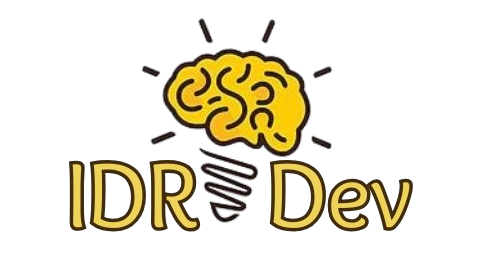AI-Powered Low-Code/No-Code: Revolutionizing App Development
The landscape of software development is undergoing a dramatic shift, fueled by the convergence of low-code/no-code (LCNC) platforms and artificial intelligence (AI). This powerful combination is democratizing application development, empowering citizen developers to build sophisticated solutions without extensive coding knowledge. Imagine a world where anyone, regardless of their technical background, can bring their innovative ideas to life through custom applications. This is the promise of AI-powered LCNC, and it’s rapidly becoming a reality, transforming industries and unlocking unprecedented levels of agility and innovation.
Background: The Rise of LCNC and AI

To understand the impact of AI on LCNC, it’s essential to grasp the evolution of both technologies individually. Low-code and no-code platforms emerged as a response to the growing demand for software solutions and the shortage of skilled developers. AI, with its ability to automate tasks, analyze data, and learn from experience, offers a natural extension to LCNC’s capabilities.
The Evolution of Low-Code/No-Code
Low-code development platforms (LCDPs) provide a visual development environment where users can drag and drop components, configure workflows, and connect to data sources with minimal coding. No-code platforms (NCDPs) take this concept a step further, offering a completely code-free experience, often through intuitive interfaces and pre-built templates. These platforms initially focused on automating simple tasks and building basic applications. As technology advanced, LCNC platforms evolved to handle more complex use cases.
The Advancement of Artificial Intelligence
Artificial intelligence has rapidly progressed from theoretical concepts to practical applications across various industries. Machine learning (ML), a subset of AI, enables systems to learn from data without explicit programming. Natural language processing (NLP) allows computers to understand and process human language. These AI technologies are now being integrated into LCNC platforms to enhance their capabilities and expand their potential.
Importance: Why AI in LCNC Matters

The integration of AI into LCNC platforms is not just a technological advancement; it’s a strategic imperative for organizations seeking to thrive in the digital age. It accelerates development cycles, reduces costs, and empowers business users to solve their own problems.
Addressing the Developer Shortage
The global shortage of skilled developers is a significant challenge for many organizations. AI-powered LCNC platforms alleviate this burden by enabling citizen developers – business users with domain expertise but limited coding skills – to build and deploy applications. This frees up professional developers to focus on more complex and strategic projects.
Accelerating Digital Transformation
<
Digital transformation requires organizations to rapidly adapt to changing market conditions and customer needs. AI-enhanced LCNC accelerates this process by allowing businesses to quickly prototype, build, and deploy applications that address specific business challenges. This agility is crucial for staying competitive in today’s fast-paced environment.
Empowering Citizen Developers
Citizen developers are individuals who are not professional programmers but possess valuable domain knowledge and a deep understanding of business processes. AI-powered LCNC platforms empower these individuals to translate their knowledge into practical applications, fostering innovation and driving business value.
Benefits: Unlocking the Potential of AI-Enhanced LCNC

The advantages of integrating AI into LCNC platforms are numerous and far-reaching, impacting everything from development speed to business outcomes.
Increased Development Speed
AI-powered LCNC platforms automate many of the repetitive and time-consuming tasks involved in traditional software development. For example, AI can assist with code generation, testing, and debugging, significantly reducing development time. Intelligent suggestions and automated workflows further streamline the process, enabling faster application delivery.
Reduced Development Costs
By empowering citizen developers and automating key tasks, AI-enhanced LCNC platforms reduce the need for expensive and specialized developers. This translates into significant cost savings for organizations. Furthermore, the faster development cycles associated with these platforms lead to quicker time-to-market, generating revenue sooner.
Improved Application Quality
AI can play a crucial role in improving the quality and reliability of applications built on LCNC platforms. AI-powered testing tools can automatically identify bugs and vulnerabilities, while machine learning algorithms can optimize application performance. This results in more robust and user-friendly applications.
Enhanced User Experience
AI can personalize the user experience within LCNC applications. For instance, AI-powered chatbots can provide instant support and guidance to users, while machine learning algorithms can tailor content and recommendations based on individual preferences. This leads to more engaging and satisfying user experiences.
Greater Innovation
By democratizing application development, AI-powered LCNC platforms foster a culture of innovation within organizations. Citizen developers can experiment with new ideas and build prototypes quickly, without the need for extensive coding expertise. This allows businesses to explore new opportunities and develop innovative solutions to complex problems.
Examples: Real-World Applications of AI in LCNC

The applications of AI-powered LCNC platforms are diverse and span across various industries. Here are some real-world examples that illustrate the potential of this technology.
Automated Customer Service
Many companies are using AI-powered LCNC platforms to build chatbots that automate customer service interactions. These chatbots can answer frequently asked questions, provide support, and resolve simple issues, freeing up human agents to focus on more complex cases. For example, a retail company might use a chatbot built on a LCNC platform to handle order tracking inquiries and process returns.
Intelligent Process Automation
AI can be used to automate business processes, such as invoice processing, data entry, and document management. LCNC platforms provide the ideal environment for building these automated workflows. An insurance company might use an AI-powered LCNC platform to automate the claims processing process, reducing processing time and improving accuracy.
Personalized Marketing Campaigns
AI can analyze customer data to identify patterns and trends, enabling businesses to create personalized marketing campaigns. LCNC platforms can be used to build applications that leverage this data to deliver targeted messages to specific customer segments. For instance, an e-commerce company might use an AI-powered LCNC platform to create personalized product recommendations based on a customer’s browsing history and purchase behavior.
Predictive Maintenance
In manufacturing and other industries, AI can be used to predict equipment failures and schedule maintenance proactively. LCNC platforms can be used to build applications that collect data from sensors, analyze the data using machine learning algorithms, and generate alerts when maintenance is required. This helps to prevent costly downtime and extend the lifespan of equipment.
Fraud Detection
Financial institutions are using AI-powered LCNC platforms to detect fraudulent transactions. Machine learning algorithms can analyze transaction data to identify suspicious patterns and flag potentially fraudulent activity. This helps to prevent financial losses and protect customers from fraud.
Strategies: Implementing AI-Powered LCNC Successfully

To successfully implement AI-powered LCNC platforms, organizations need to adopt a strategic approach that considers both the technical and organizational aspects.
Identify Use Cases
The first step is to identify specific business problems that can be solved using AI-powered LCNC platforms. Focus on areas where automation and improved efficiency can have a significant impact. Talk to different departments and teams to understand their challenges and identify potential use cases.
Choose the Right Platform
Select an LCNC platform that offers robust AI capabilities and aligns with your organization’s needs. Consider factors such as ease of use, scalability, security, and integration with existing systems. Research different platforms and compare their features and pricing.
Provide Training and Support
Ensure that citizen developers have access to the training and support they need to effectively use the LCNC platform and AI tools. Offer workshops, online tutorials, and mentoring programs. Create a community of practice where citizen developers can share their experiences and learn from each other.
Establish Governance Policies
Implement governance policies to ensure that applications built on LCNC platforms are secure, compliant, and aligned with business objectives. Define clear roles and responsibilities, and establish guidelines for data management and application deployment. Regularly review and update these policies as needed.
Start Small and Scale Gradually
Begin with a small pilot project to test the waters and demonstrate the value of AI-powered LCNC platforms. Once you have achieved success with the pilot project, you can gradually scale up your implementation to other areas of the organization. Learn from your experiences and adapt your approach as needed.
Challenges & Solutions: Addressing Potential Pitfalls

While AI-powered LCNC platforms offer numerous benefits, it’s important to be aware of the potential challenges and take steps to mitigate them.
Data Quality and Bias
Challenge: AI algorithms are only as good as the data they are trained on. If the data is incomplete, inaccurate, or biased, the resulting AI models will be unreliable.
Solution: Invest in data quality initiatives to ensure that your data is accurate, complete, and representative. Implement data governance policies to prevent bias from creeping into your data. Regularly monitor and audit your AI models to detect and address any biases that may arise.
Security Risks
Challenge: LCNC platforms can introduce new security risks if not properly secured. Citizen developers may not be aware of the latest security best practices, making their applications vulnerable to attacks.
Solution: Implement robust security controls on your LCNC platform. Provide security training to citizen developers. Conduct regular security audits to identify and address vulnerabilities.
Integration Complexity
Challenge: Integrating LCNC applications with existing systems can be complex and challenging. Different systems may use different data formats and protocols, making it difficult to exchange information seamlessly.
Solution: Choose an LCNC platform that offers robust integration capabilities. Invest in integration tools and expertise. Use APIs to connect LCNC applications with existing systems.
Lack of Scalability
Challenge: Some LCNC platforms may not be scalable enough to handle the demands of large-scale applications. This can lead to performance issues and limit the platform’s usefulness.
Solution: Select an LCNC platform that is designed for scalability. Ensure that the platform can handle the expected volume of traffic and data. Monitor application performance and scale resources as needed.
Maintenance and Support
Challenge: Maintaining and supporting LCNC applications can be challenging, especially if the original developers are no longer available.
Solution: Document your LCNC applications thoroughly. Establish clear procedures for maintenance and support. Train other developers to maintain and support the applications. Consider using a managed LCNC service provider.
FAQ: Common Questions About AI-Powered LCNC
- Q: What is the difference between low-code and no-code platforms?
A: Low-code platforms require some coding knowledge, while no-code platforms allow you to build applications without writing any code. - Q: Who can use AI-powered LCNC platforms?
A: Both professional developers and citizen developers can use these platforms. They are designed to be accessible to users with varying levels of technical expertise. - Q: What types of applications can be built with AI-powered LCNC platforms?
A: You can build a wide range of applications, including web applications, mobile applications, and business process automation solutions. - Q: How secure are applications built on AI-powered LCNC platforms?
A: The security of these applications depends on the platform’s security features and the developer’s adherence to security best practices. - Q: What is the future of AI in LCNC?
A: The future of AI in LCNC is bright. We can expect to see even more sophisticated AI capabilities integrated into these platforms, making them even more powerful and accessible.
Conclusion: Embracing the Future of Application Development
AI-powered low-code/no-code platforms represent a paradigm shift in software development, empowering businesses to innovate faster, reduce costs, and address the developer shortage. By embracing this technology, organizations can unlock new levels of agility, efficiency, and competitiveness. The future of application development is here, and it’s accessible to everyone. Ready to transform your business with AI-powered LCNC? Explore the possibilities and start building your future today!
- Source: Opensource.com
- Source: Opensource.com
- Source: Opensource.com

